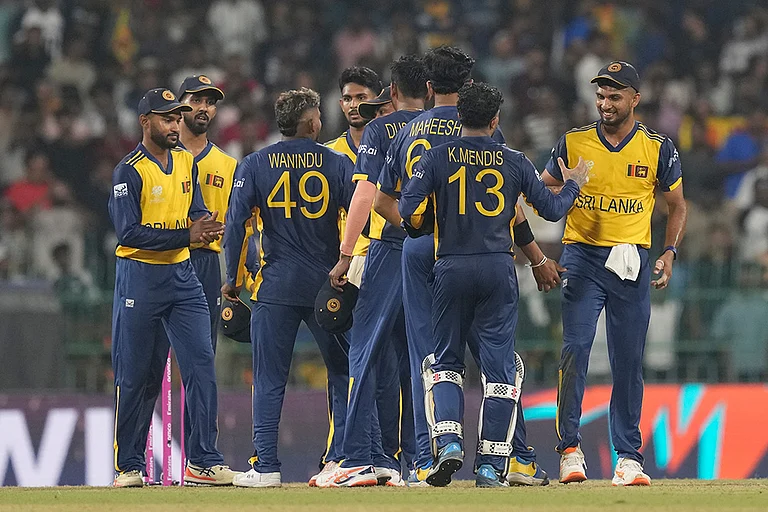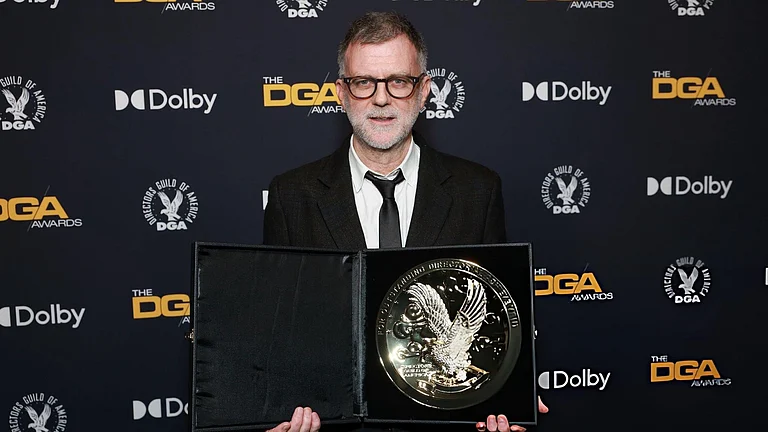Just Wanton Singh?

What is it about Mohammed Ali Jinnah that draws our saffron friends like moths to a flame? Knowing perfectly well the perils of revisionist history, they plunge merrily in. Mr Jaswant Singh’s defence that he is just an author conducting an “academic exercise” won’t wash. He is one of the seniormost BJP leaders, a former foreign and finance minister, every word he writes or speaks about the founder of Pakistan is bound to be examined under the microscope. Mr Singh, surely, could not have been unaware of this. So, why did he do it? The only explanation I can think of is “he just doesn’t care”. His position in the party has become so marginal that Jaswant is having a bit of a frolic, while burnishing his credentials as a man of letters. The old India hand and British Labour leader, Michael Foot, maintained that a politician who does not read or write books is unfit for high office. Mr Singh could be following Foot’s maxim.
Predictably, the book has created a furore—a furore which will do the sales no harm. As far as historical authenticity or novelty is concerned, we’ve been here before. If the Qaid has been unfairly demonised in the past, then to correct the travesty we need a new demon. Jaswant comes up with an unsurprising name, Jawaharlal Nehru (with a bit part for Sardar Patel). The demonisation of Nehru by a BJP leader is not unwelcome in saffron circles, and the tome may have received bouquets rather than expulsion from the parivar if Jaswant had stopped at this point. Alas, there was a price to be paid for conjuring up a new villain. The old villain had to be de-demonised. Thus, we are presented with this ‘Jinnah is a great man’ thesis. Whether this reading of Partition is accurate is not germane here. Mr Singh had no option but to lock himself into this denouement.
We have one more question to answer. Should we at all be looking for demons and angels? Isn’t it a trifle simplistic to reduce the Partition narrative to a Bollywood screenplay? Given those dishonest, turbulent and bloody times of Byzantine complexity, should we try to fit the division of the subcontinent into a well-rounded, beginning, middle and end tale? Indeed, one can argue that the whole search for demons—Jinnah, Gandhi, Nehru, Mountbatten—is foolish, if truth is the goal. Could it not be possible that there was more than one demon? Perhaps two, three or even four! If the Hindu view of Truth (that it has multiple sides) is valid, then the Partition story needs a more nuanced narration.
I will end with two quotes from Philip Ziegler’s much-admired biography of Mountbatten. First on Nehru: “Partition was not something Nehru was prepared to contemplate...but the relationship between the centre and the provinces, and the right of provinces to associate with each other on grounds of politics, propinquity or religious faith was open to endless gradations.”
Second, on Jinnah: “In Jinnah, Mountbatten found no such flexibility. Nehru had presented him as a monster of negativism, a man who would agree on nothing.... Jinnah used negativism to achieve positive ends; by saying no he inexorably closed all avenues except the one leading to the only affirmative he would accept—an independent Pakistan. He paid his first visit to the Viceroy’s house on 5th April—‘My God, he was cold!’ Mountbatten exclaimed as the Muslim leader left the building.”
My Name is Can’t
The SRK airport soap opera is not going according to script. For a start, the facts keep changing. From a two-hour “humiliation”, we are down to 66 minutes. From charges of “hassling”, we are down to determined but not hostile interrogation by security officers oblivious of the traveller’s domestic status. From “outrage” on the Pali Hill wing, we are down to “no big deal” and even grudging acceptance that each country is entitled to its own procedures. In the United States, immigration officials are probably infuriatingly diligent—and mostly unimpressed by the don’t-you-know-who-I-am approach. I’ve never had the pleasure of meeting Shahrukh, but from what I hear and read, he seems a sensible sort of individual. Therefore, I am surprised he created such a shindig over something so necessary and so unavoidable.
Conspiracy theorists hold that Mr Karan Johar and company hyped up the detention in the hope of collecting some free publicity for the SRK film that had been shot in the US. And, of course, to show their unstinting loyalty. The tactic, unfortunately, has backfired and most of the publicity generated has been bad or close to bad. Moral: Airport security exists for the safety of the passenger, and Mr Khan was a passenger. Period.
Anyone Miss Editor?
Time for another bulletin on Editor. He is steadily growing middle-aged, lazy and grumpy. His eating preferences, unfortunately, remain a problem. Not only does he insist on Parmesan (cheese) but currently he has developed another passion: chocolate chip cookies. For a dog found in a ditch, he has upmarket tastes.




















